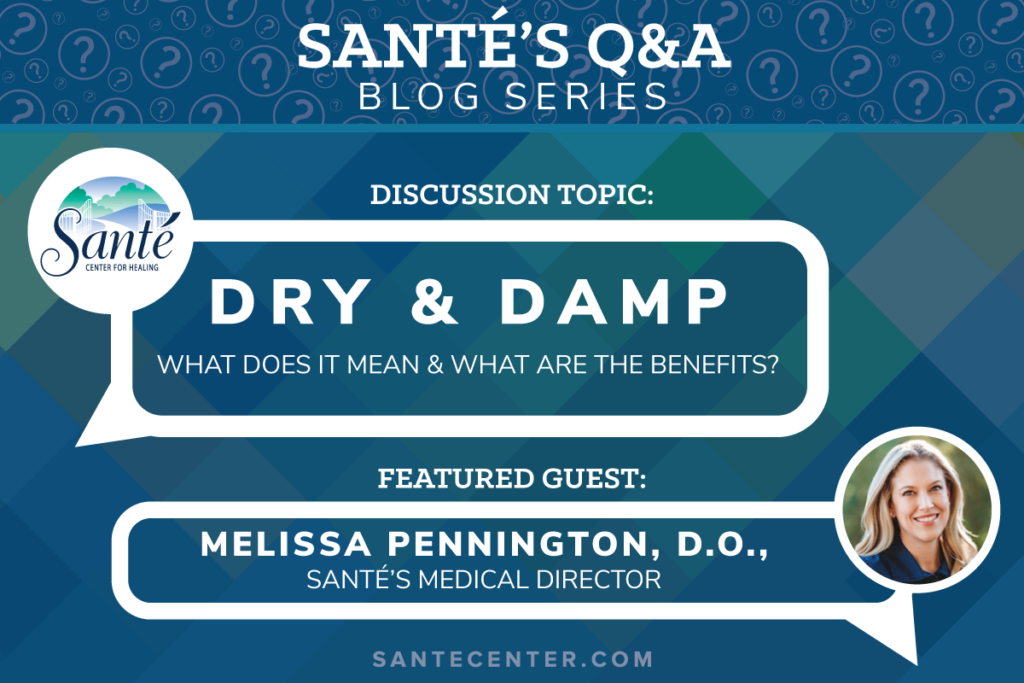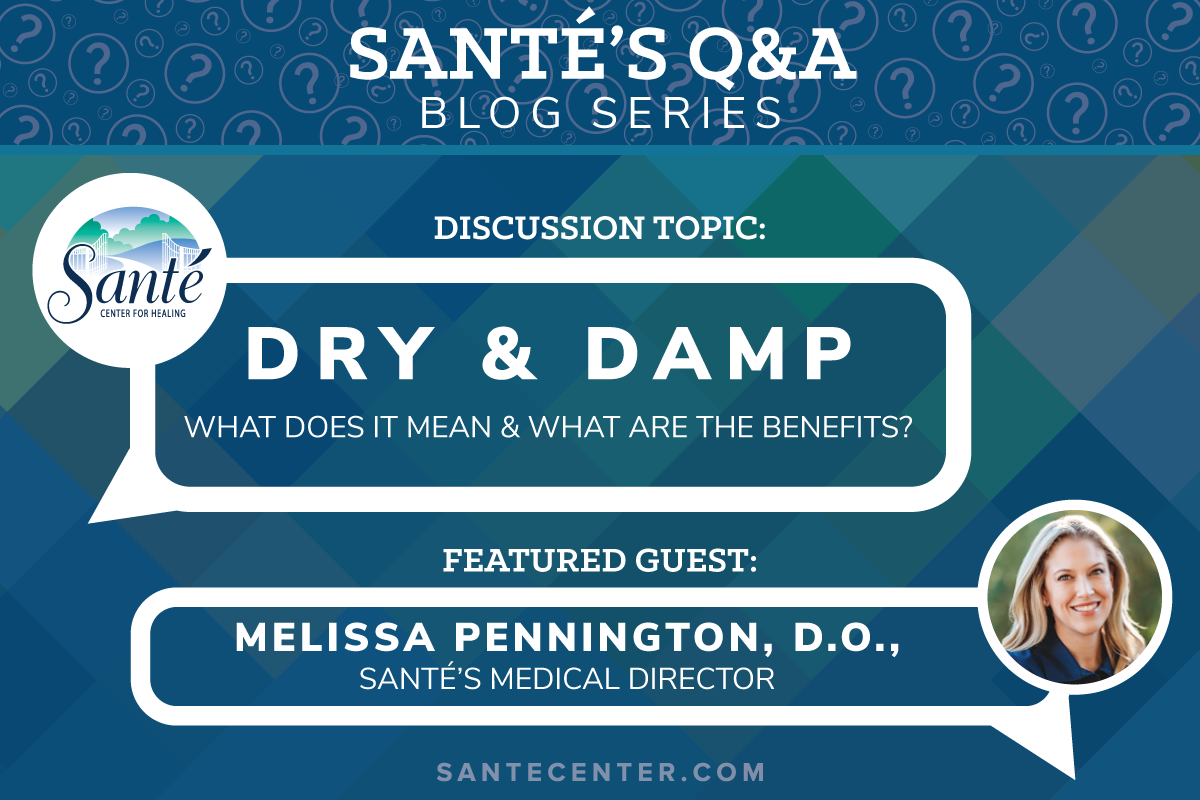Q & A with Santé’s Medical Director, Melissa Pennington, D.O.
WHAT IS DRY/DAMP JANUARY?
Over the last decade, “Dry January” has become a popular way to begin the year for many. Dry January is when an individual commits to not drink any alcohol for the 31 days in the month.¹ More recently, “Damp January” has also become a popular way to begin the year. Damp January is setting a goal to decrease drinking by a certain amount and committing to do so for the month. It is a way to commit to reducing alcohol intake for those who aren’t interested in abstaining completely for the month.
What are the benefits to participating in Dry January?
Benefits reported by those abstinent from alcohol for a month:
- Financial savings
- Improved sleep
- Increase in energy
- Better overall health – such as weight loss and a decrease in blood pressure. ²
What are the benefits to participating in Damp January?
Damp January can be beneficial as studies have shown a reduction in alcohol can also lead to the similar health improvements, especially for those who were heavier drinks prior to reducing their alcohol intake.⁴
Are the benefits from participating in Dry/Damp January permanent?
Any benefits are short lived if an individual begins drinking the same amount and at the same frequency, they did prior to the challenge.³
Why should you consider participating in Dry/Damp January?
These challenges can be a way for someone to analyze their relationship with alcohol and determine what changes they can make to continue throughout the year and beyond. If someone tries and is unable to decrease their alcohol intake, that could serve as an indication to seek professional help.
What are the Pros and Cons of Dry January?
Any benefits are short lived if an individual begins drinking the same amount and at the same frequency, they did prior to the challenge.³
Whether one is participating in Dry or Damp January, it is a good time to:
- Identify the reasons you drink alcohol and determine if other activities can accomplish the same goals. (i.e. you usually drink due to stress and now will try to go for a walk)
- Evaluate how difficult you find it to abstain or reduce your alcohol intake.
- Assess how your body feels when you are abstaining or reducing your alcohol intake.
- Determine what, if any, changes you’ll make in your alcohol intake going forward.
“These challenges can be a way for someone to analyze their relationship with alcohol and determine what changes they can make to continue throughout the year and beyond. If someone tries and is unable to decrease their alcohol intake, they should seek professional help. We have treated alcohol dependence and other substance use disorders since 1996 and if we aren’t the right fit for an individual, we will help them find a place that is,” says Santé Center for Healing’s Medical Director Melissa Pennington, D.O., ABPN, ABAM, CEDS.
WHERE DO I GO FOR MORE INFORMATION OR HELP?
Santé Canter for Healing has treated alcohol dependence and other substance use disorders for over 27 years. Our mission is to provide the resources for long-term recovery through an integrated clinical and medical continuum of care individualized to each unique person and family we serve. If we aren’t the right fit for an individual, we will help them find a place that is, visit www.santecenter.com. Graphics by: Julie K. Ballard For More on Social Media:
Sources
- https://alcoholchange.org.uk/help-and-support/managing-your-drinking/dry-january/about-dry-january/the-dry-january-story
- de Ternay J, Leblanc P, Michel P, Benyamina A, Naassila M, Rolland B. One-month alcohol abstinence national campaigns: a scoping review of the harm reduction benefits. Harm Reduct J. 2022 Mar 4;19(1):24. doi: 10.1186/s12954-022-00603-x. PMID: 35246148; PMCID: PMC8895623.
- Witkiewitz K, Heather N, Falk DE, Litten RZ, Hasin DS, Kranzler HR, Mann KF, O’Malley SS, Anton RF. World Health Organization risk drinking level reductions are associated with improved functioning and are sustained among patients with mild, moderate and severe alcohol dependence in clinical trials in the United States and United Kingdom. Addiction. 2020 Sep;115(9):1668-1680. doi: 10.1111/add.15011. Epub 2020 Mar 10. PMID: 32056311; PMCID: PMC7841874.
- DOI:https://doi.org/10.1016/S2468-2667(17)30003-8







